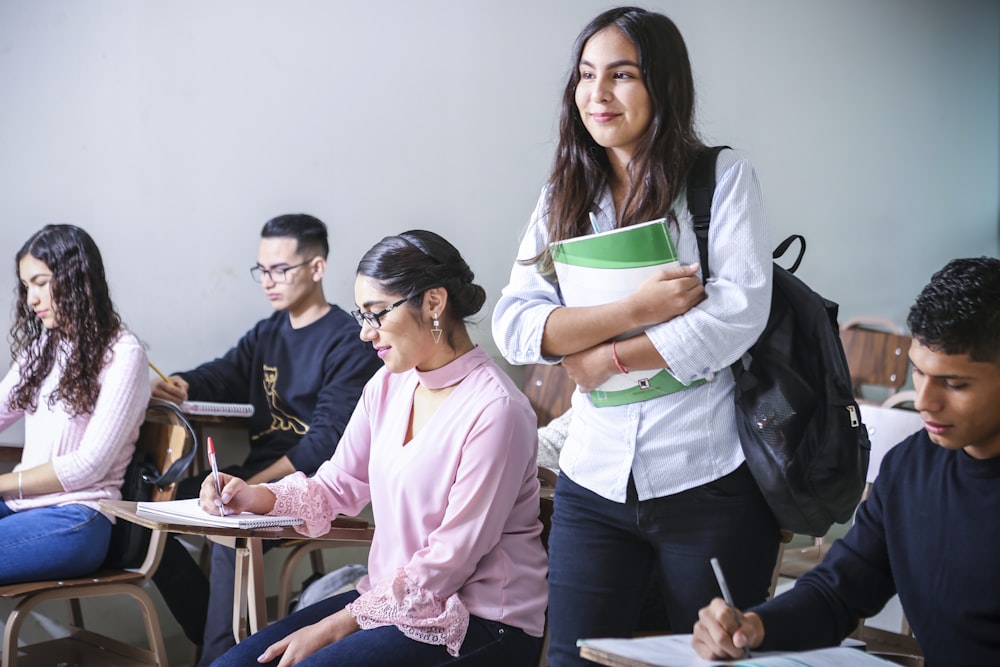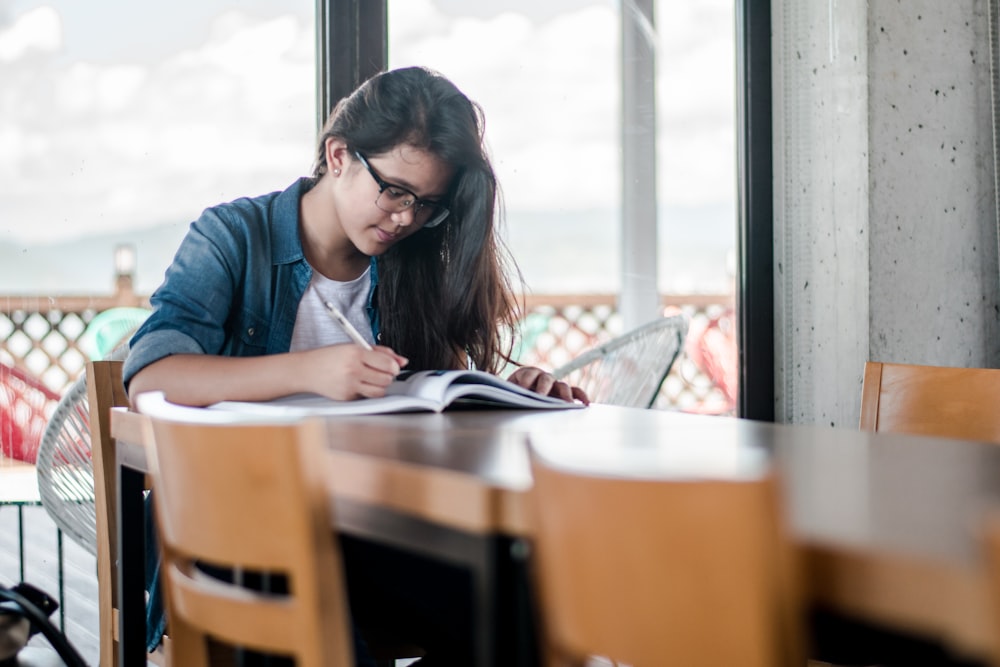Becoming a Great Student: Study Hacks to Try
Beyond just receiving exceptional grades, becoming a stellar student has additional advantages. In a short while, you’ll be a more competitive college candidate, and you might even be qualified for some sizeable scholarships.
Long-term, the skills you learn in school will stick with you the rest of your life and provide you the ability to handle any situation.
Studying in a quiet place: becoming a great student
Image via Unsplash.com
You will learn more and get better scores the more you put into your studies. To create a quiet, focused environment, however, take out all distractions (cell phones, television, loud/fast-paced music, and chatty friends/family members). The quality of your study time must also be efficient.
Wear noise-canceling headphones if you can’t find a peaceful area to study (but don’t play any music).
When your classmates are busy doing anything else, schedule some time to study. For instance, if you finish your lunch early, go to a peaceful, uncrowded location like the library.
Avoid procrastination
Image via Unsplash.com
Even though it would be appealing to put off doing anything until later, this rarely occurs. As soon as you get home after the last class is over, make it a priority to start studying. Study that subjects first if you’re having problems with it, and try to stay upbeat!
If you are still putting things off, enlist a friend or member of your family to hold you accountable. You may say, “Could you check on me in an hour to make sure I’m still studying?” or anything similar.
If you feel like you’re having trouble understanding something, keep repeating encouraging statements to yourself. You can tell yourself, “I can master these equations,” as an example. or “I am going to ace this test!”
Taking short breaks: becoming a great student
Consider taking a 10-minute break after every hour because your brain needs time to unwind and process information. Take a brief break if you find yourself stuck on a certain subject so you can return more energized. To prevent a quick 10-minute break from morphing into a 30-minute period of procrastination, set a timer on your phone or another device.
Reading and preparing questions
Image via Unsplash.com
Find out which chapter your teacher will be covering tomorrow before you arrive at class. By doing this, you gain a better understanding of the subject and are more prepared to get any questions you may have answered.
To bring attention to crucial material, highlight it with a highlighter or jot down your queries on sticky notes.
Doing extra credits: becoming a great student
Do extra tasks or readings if your teacher says you can get extra credit for them. You can raise your grade and gain a deeper understanding of the subject matter even if your class grade is 98%.
Ask your teacher if there is anything you can do for extra credit if you are having trouble improving a poor grade. They’ll be amazed by your commitment!
Study for tests and quizzes: be a great student
Image via Unsplash.com
Start your preparation for a significant test a few days to a week beforehand, or even when the test is announced. Create a study schedule, segment your time, and adhere to it strictly. Avoid cramming since doing so hinders your brain from having adequate time to fully digest information.
Tell your coach or teacher if you participate in extracurricular activities or play sports if you might need to leave early or arrive a bit later to fit in time for your studies. Plan your study time around any events where attendance is required, such as plays or championship sporting events.
Preparing your own tests
Spend some time outlining some issues, or have someone else do it for you. Just keep in mind that information is more likely to stick in your memory if you encounter and think about it frequently.
If you’re studying for algebra, for instance, ask a friend to type out some equations that you can answer. If you have trouble controlling your time when taking an exam, time yourself.
Practice writing paragraphs in Language Arts classes using appropriate vocabulary terms and a variety of sentence forms. Write a review of your favorite film or write down your thoughts on a topic that interests you to make it enjoyable.
Reading extensively:: becoming a great student
Image via Unsplash.com
Reading challenging books can improve your vocabulary and comprehension, which is beneficial when a teacher gives texts with challenging linguistic constructions. Start where you are and work your way up if you are not already an ardent reader.
To get into it, read something you enjoy. Ask a friend who enjoys reading for suggestions if you have one.
Ask the librarian for suggestions at your school or neighborhood library based on what you enjoy and disapprove of in other media.
New ways of learning
Making links between previous knowledge and new information through mind maps helps you better remember new facts by providing them with context. When coming up with ideas for significant tasks, this exercise is very helpful. A mind map is made by writing the topic in the center, adding lines pointing in various directions, and then writing your ideas on top of the lines.
Consider generating as many ideas as you can. If you’re having trouble, look online for further details.
Stay organized: becoming a great student
Make sure you have everything you need with you so that you are ready for each day. You must bring books, folders, pens, pencils, homework, review sheets, highlighters, sticky notes, bookmarks, and other necessities if you want to keep organized.
Place a copy of your class schedule where you will see it every day in your home. Create a reminder to bring specific goods on specific days. You’ll be able to plan your materials accordingly and know exactly what class you have.
Keeping separate folders
Image via Unsplash.com
Being organized is crucial for success in school since it puts you one step ahead of other students. Keep a folder for each subject as a good place to start.
This entails filing your math assignments in your math folder, your language arts assignments in your language arts folder, your scientific assignments in your science folder, and so forth.











One Comment on “Becoming a Great Student: Study Hacks to Try ”